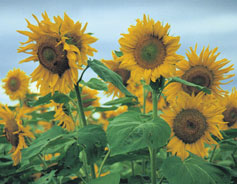On the Northern coast of Puerto Rico, 50 miles west of San Juan, the city of Arecibo and surrounding area is home to some of the world’s most fertile soil and diverse farmland.
A series of earthquakes and hurricanes have struck the island in recent years, damaging critical farming infrastructure like buildings, roads, irrigation equipment and high-tunnel greenhouses. Still in the rebuilding process, the pandemic caused massive economic pains for Puerto Rican farmers as the economy was forced to close.
“From a consumer perspective, we only see what is on our plates and in our supermarket isles. Small and medium-sized farmers have taken the biggest hit as large farms have the all the tools and financial support,” said Anthony De La Rosa, a private agricultural professional in Puerto Rico.
Through the De La Rosa Company, he educates and supports farmers with hydroponics, agriculture technology and a number of other community outreach programs in Arecibo. After seeing the struggles of farmers around him, De La Rosa set out to develop a program that would educate Puerto Rican farmers as they rebuild and improve their operations.
Forced to adapt his program due to the COVID-19 pandemic, he reached out to the Southern Sustainable Agriculture Research and Education program to continue his work. Through the Southern SARE Sponsorship Program, De La Rosa received funding to pivot a program designed to teach farmers about hydroponics, sustainability practices and good farm business management, into a virtual setting.
“Things have been hectic the last 7 or 8 months. We’ve tried to focus more on hydroponics and senior farmers. The sponsorship helped me through this by allowing me to host the event.” said De La Rosa.
To keep participants safe, the program was redesigned. The training program was shifted to a three-day webinar designed to improve farm sustainability on the island and teach producers about the potential of hydroponics for their operations. The on-farm demonstration of the hydroponic system was moved to a location that could safely host the event.
The program began on January 1, 2021.
For more information on the Southern SARE program, please visit southern.sare.org
Published by the Southern Region of the Sustainable Agriculture Research and Education (SARE) program. Funded by the USDA National Institute of Food and Agriculture (NIFA), Southern SARE operates under cooperative agreements with the University of Georgia, Fort Valley State University, and the Kerr Center for Sustainable Agriculture to offer competitive grants to advance sustainable agriculture in America’s Southern region. This material is based upon work that is supported by the National Institute of Food and Agriculture, U.S. Department of Agriculture, through Southern Sustainable Agriculture Research and Education. USDA is an equal opportunity employer and service provider. Any opinions, findings, conclusions, or recommendations expressed in this publication are those of the author(s) and do not necessarily reflect the view of the U.S. Department of Agriculture.
